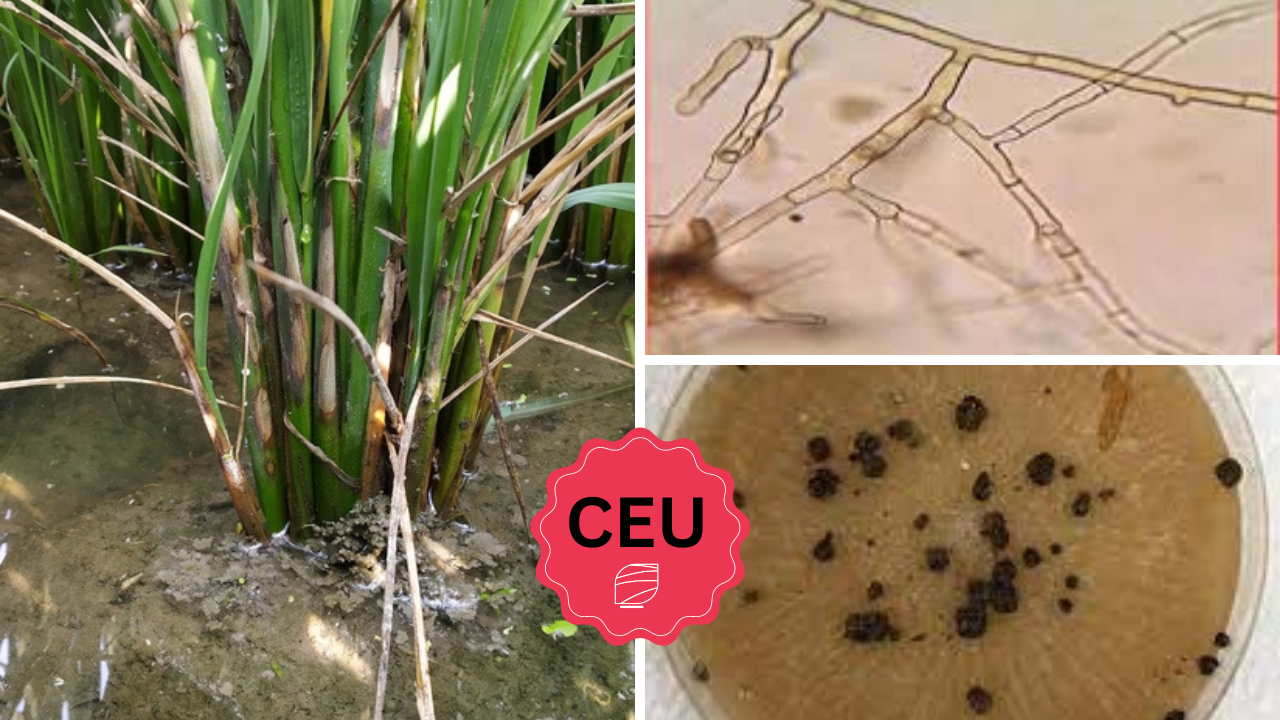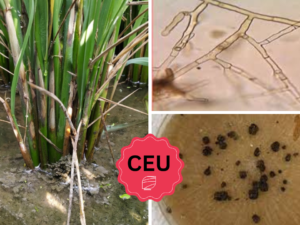Managing Sheath Blight Disease of Rice Crops
- Description
- Curriculum
- FAQ
- Notice
- Reviews
- Grade

This comprehensive course focuses on managing sheath blight disease, specifically rice crops cultivated in diverse production regions. Participants will gain an in-depth understanding of the disease, its prevalence in Arkansas, and the factors contributing to its severity. They will also learn practical and effective techniques to mitigate the adverse effects of sheath blight on rice production in the region.
The course begins by exploring the biology of the causal agent responsible for sheath blight disease in rice crops. Participants will delve into the characteristics of the pathogen, its life cycle, and the specific ways it infects and spreads within rice plants. Understanding the biology of the causal agent is crucial for developing targeted and region-specific management strategies.
Epidemiology, the study of disease patterns and their influencing factors, is crucial in this course. Participants will examine the environmental and agronomic conditions that favor developing and spreading sheath blight disease. They will learn about the climatic conditions, soil types, and cultural practices that contribute to the severity of the disease. By understanding the epidemiology of sheath blight, participants will be better equipped to predict and manage outbreaks in their specific production regions.
This course is essential for agronomists, researchers, grad students, and rice growers. It seeks to enhance their understanding and management of sheath blight disease in rice crops within the region’s diverse production environments.
-
4Unit 1. Course overview and objectives
- Introduce the course and its purpose to provide participants with the knowledge and skills necessary to manage Rhizoctonia in rice production fields in Arkansas effectively.
- Outline the critical objectives of the course, such as understanding the biology and epidemiology of the causal agent, exploring disease management strategies, and equipping participants with practical tools for successful Rhizoctonia management.
-
5Unit 2. Importance of managing Rhizoctonia in rice production fields
-
6Unit 3. Overview of the course structure and modules
-
7Unit 4. Historical perspective of Rhizoctonia in rice production in Arkansas
-
8Quiz module 1
-
15Unit 7. Understanding the Disease Develpment
-
16Unit 8. Examine the environmental and agronomic factors that contribute to the development and spread of Rhizoctonia in rice crops.
-
17Unit 9. The impact of weather conditions, soil characteristics, and cultural practices on disease severity and spread.
-
18Quiz module 3
-
19Unit 10. Cultural practices for Rhizoctonia management
-
20Unit 11. Resistant rice varieties and their selection for production regions
-
21Unit 12. Integrated pest management approaches for comprehensive disease management
-
22Unit 13. Chemical control options and fungicide application strategies
-
23Unit 14. Biological Control
-
24Quiz module 4
Please note that the duration and depth of each module may vary depending on the specific learning objectives and the course's intended timeframe. This curriculum provides a structured framework for understanding and managing Rhizoctonia in rice production fields in Arkansas, empowering participants with practical knowledge and strategies for successful disease management.
Thanks,
Agromee247 Team










